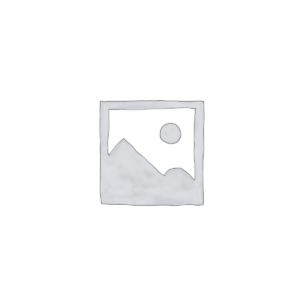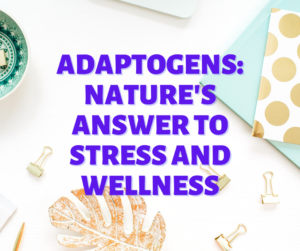Plant medicine offers a compelling pathway to wellness, drawing upon nature’s wisdom. But how can you navigate the abundance of information and make informed decisions? This exploration of plant medicine’s benefits, risks, and responsible use seeks to empower you with knowledge.
Table of Contents:
- Understanding Plant Medicine
- The Power of Plants: Exploring the Benefits
- Respecting Nature’s Pharmacy: Precautions with Plant Medicine
- Seeking Guidance for Safe and Effective Use
- Conclusion
Understanding Plant Medicine
Plant medicine, also known as herbal medicine, involves using plants for therapeutic purposes. This includes using various plant parts like leaves, roots, flowers, seeds, or extracts. These are often processed to create products such as teas, tinctures, capsules, or topical preparations.
Herbal medicine is a cornerstone of traditional medicine systems worldwide. According to the World Health Organization, roughly 88% of countries utilize it.
The Power of Plants: Exploring the Benefits
Many plants boast potent medicinal properties. Scientific research continues to validate the traditional uses of various herbs.
Let’s explore the potential health benefits of some common plant medicines.
Boosting Brainpower with Ginkgo Biloba
Ginkgo biloba, sourced from one of the oldest tree species, is renowned for its cognitive benefits. A 2021 review indicated it may help manage dementia symptoms.
This aligns with a Mayo Clinic study on combining conventional heart medicines with herbal supplements, exploring their interaction.
Fighting Inflammation with Turmeric
Turmeric, a spice in the ginger family, is a staple in Eastern Asian medicine. It is prized for its anti-inflammatory properties, with research suggesting potential benefits for conditions like diabetes and arthritis.
While ginger is a common household remedy, other herbs like echinacea and licorice root also offer various medicinal uses.
Hormonal Harmony and Flax Seed
Flax seed offers potential benefits for cardiovascular, gastrointestinal, and hormonal health, as indicated by studies from 2019. These studies suggest flax seed might even help regulate blood pressure.
Similar research on Nigella sativa by experts in herbal medicine practitioners reveals its traditional uses in treating nausea and pain management.
Anxiety Relief and Calming Chamomile
Chamomile, a gentle yet powerful herb, is a popular traditional remedy for anxiety and sleep problems. A 2023 review highlights its promising role in improving sleep quality and gastrointestinal health. It may also reduce anxiety, which can contribute to better sleep.
Healing from Within with Plant Medicine’s Holistic Approach
Plant medicine embraces a holistic perspective. This means it considers the interplay of various body systems and seeks to address underlying causes of illness.
The diverse range of compounds within plants allows them to potentially act on multiple body systems simultaneously. This contributes to the holistic nature of plant medicine.
Respecting Nature’s Pharmacy: Precautions with Plant Medicine
Natural doesn’t always equal safe. Some plants, such as certain types of wild grapes, can be toxic.
Understanding the source and proper preparation of your herbal remedies is essential. Never assume a plant is safe without consulting reliable information.
Some plants, like water hemlock, are highly poisonous. Others may contain compounds that can negatively affect human health. It is crucial to correctly identify plants to avoid accidental poisoning or adverse effects.
Plant medicine can sometimes interfere with prescription medications. These interactions may result in unexpected side effects or alter medication effectiveness. Consulting with a health care provider or registered practitioner is essential.
A 2018 study explored patients’ motivations for using complementary medicine, including herbal remedies. Plant potency can also vary. A 2019 study on lavender showed that its effects on anxiety depend on preparation and usage.
Additional factors worth noting are:
| Plant Medicine | Possible Benefits | Potential Risks and Interactions (according to the NCCIH) |
|---|---|---|
| Black Cohosh | Menopause symptoms | Stomach upset, cramping, headache, skin rash, vaginal spotting, weight gain; may cause liver damage. |
| Echinacea | Common cold prevention | Nausea, stomach pain. |
| Garlic | High cholesterol | Increased bleeding risk (unsafe with anticoagulants or before surgery); may interact with HIV medication saquinavir. |
| Ginkgo | Age-related dementia, schizophrenia, anxiety, eye health, peripheral artery disease, premenstrual syndrome | Headache, stomach upset, dizziness, palpitations, constipation, skin reactions; increased bleeding risk. |
| Licorice Root | Digestive symptoms, atopic dermatitis, sore throat | Unsuitable for those with high blood pressure, heart or kidney disease; may raise blood pressure, lower potassium; large doses may cause premature birth/infant health issues. |
| Milk Thistle | Hepatitis, type 2 diabetes | Digestive issues; allergic reactions (if allergic to marigold, chamomile, or daisies). |
| Passionflower | Sleep problems, anxiety | Drowsiness, confusion, uncoordinated movement; unsuitable during pregnancy (may induce contractions). |
| Valerian | Menopause symptoms, anxiety, sleep problems | Headache, stomach upset, excitability, uneasiness, and heart issues. |
Always consult your doctor before using plant medicine. This is especially important during pregnancy, breastfeeding, or if you are taking other medications. This helps ensure your safety and avoids potential adverse effects or interactions with prescription medicines.
Seeking Guidance for Safe and Effective Use
Using plant medicine wisely requires informed decisions. Before using herbal remedies for any health concern, consult a healthcare professional. They can provide personalized advice based on your individual needs and health status.
Complementary medicines, including herbal preparations, can be valuable resources. Finding a qualified herbalist or naturopath from a reputable organization like the National Herbalists Association of Australia (NHAA) can provide expert guidance. They can also help you understand potential interactions with prescribed medications.
Never discontinue existing medications for herbs without consulting your doctor. Discuss plant medicine safety, quality, and efficacy with your medical provider or a qualified herbal practitioner. The Better Health Channel offers helpful resources on using herbal medicine safely and effectively.
Regulations concerning plant medicine vary. Some governments restrict importing herbal products, so it’s crucial to be aware of local laws. Plant medicines manufactured in other countries may not adhere to the same standards as regulated products in your region.
Conclusion
Plant medicine offers a time-tested approach to wellness. While modern medicine plays a crucial role in healthcare, plant-based therapies have been used for centuries for various health concerns. Responsible use, combined with guidance from healthcare professionals, can make plant medicine a valuable part of your health journey. As our understanding of traditional Chinese medicine and other forms of herbal therapy evolves, so too will the potential of plant-based remedies to improve health.

